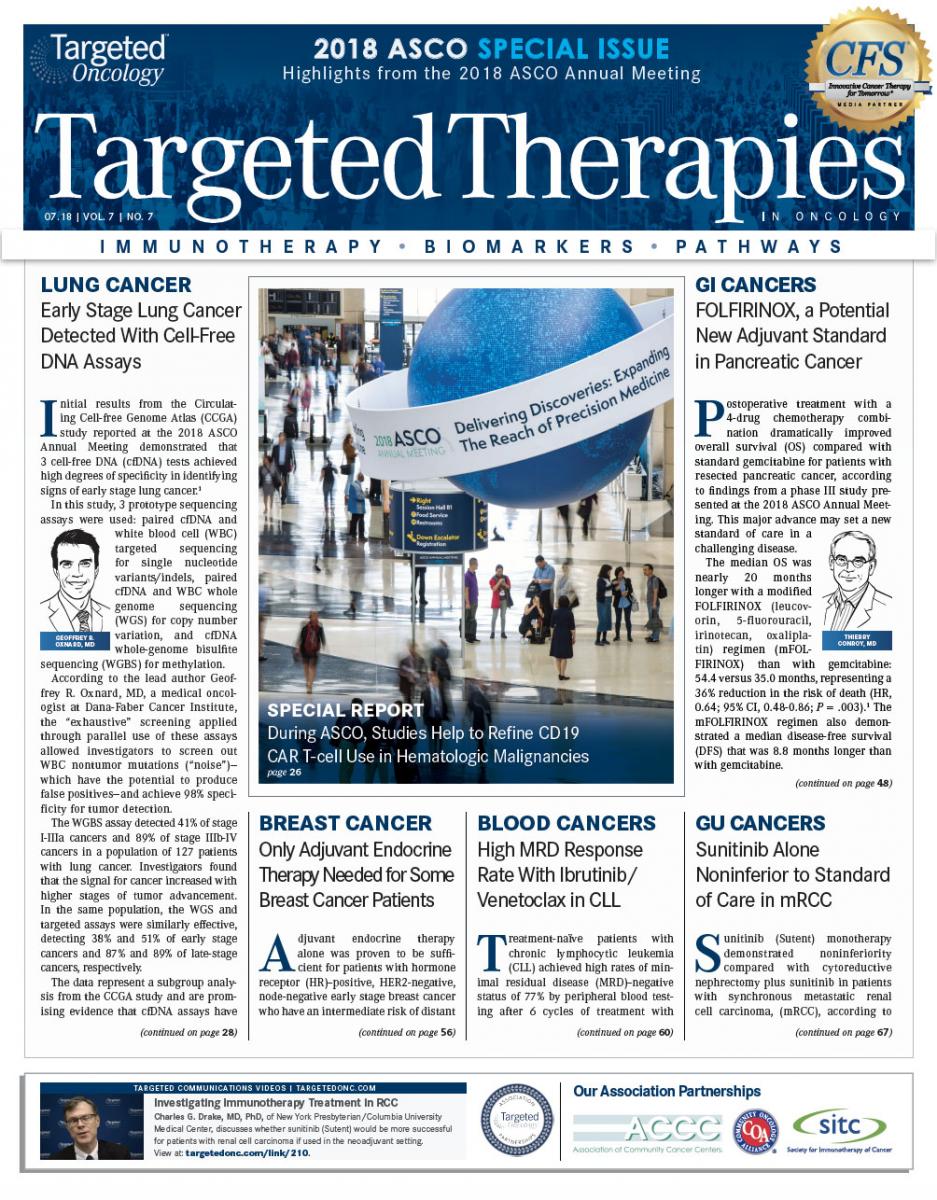When Practice Changing Isn't Changing Practice
Arjun V. Balar, MD, Editor-in-Chief of Targeted Therapies in Oncology, discusses the plenary session at. the 2018 ASCO Annual Meeting. Findings from the CARMENA trial in metastatic clear cell renal cell carcinoma were presented.
Arjun V. Balar, MD
The plenary session at the 2018 ASCO Annual Meeting every year provides an enormous platform to present the most significant and practice-changing research that may have an immediate impact on patient care. This year was no different, with several pivotal studies presented, including the CARMENA trial, which assessed the role for cytoreductive nephrectomy in metastatic clear cell renal cell carcinoma (RCC). The context was a historical standard of performing cytoreductive nephrectomy based on randomized data in the era of cytokine-based immunotherapy demonstrating a survival benefit. What was unknown was whether this benefit continued to hold up in the modern era of VEGFR-directed therapies.
The investigators should be congratulated on successfully conducting a prospective randomized trial in a context in which performing surgery was already a widely adopted approach. But this fact also opens up the potential for significant bias in the patients who were enrolled. It is possible that patients viewed as excellent surgical candidates were not approached for this trial (ie, those with large primary tumors and limited metastatic disease). This potential selection bias is reflected in the high proportion of patients with poor-risk disease (approximately 40% in each arm) enrolled to the trial. Furthermore, of the 226 patients who were randomized to surgery, 6.7% did not receive surgery and 22.5% did not receive subsequent sunitinib (Sutent). Conversely, of the 224 patients randomized to sunitinib, 17% went on to have subsequent surgery.1These data reflect a high-risk population enrolled to the study that may have significantly contributed the outcomes observed.
Regardless, the ultimate question is how these data impact our current understanding and care of patients with advanced RCC. The short answer is: not much.
We have historically reserved cytoreductive nephrectomy to patients who are good operative candidates with clear cell histology, large primary tumors representing the bulk of a patient’s disease burden, and patients who have limited metastatic disease that is not extensively involving the liver or bone.2Thus, the data from the CARMENA trial reinforces, rather than revises, our current approach to management of RCC.
Moreover, systemic therapy in advanced RCC has experienced a recent renaissance of immunotherapy, such that these data may not be relevant to modern therapeutic approaches. In RCC, the primary tumor is often highly immunosuppressive and its surgical removal may lend to improved systemic immune responses. As immunotherapy with checkpoint blockade is now firmly established as a first-line standard of care in intermediate- and poor-risk advanced RCC, the role for cytoreductive nephrectomy will likely remain unchanged.3
Unfortunately, this practice-changing trial may not be as practice changing as we initially thought.
References:
- Méjean A, Ravaud A, Thezenas S, et al. Sunitinib alone or after nephrectomy in metastatic renal-cell carcinoma [published online June 3, 2018].N Engl J Med.doi: 10.1056/NEJMoa1803675.
- Culp SH, Tannir NM, Abel EJ, et al. Can we better select patients with metastatic renal cell carcinoma for cytoreductive nephrectomy?Cancer.2010; 116(14):3378- 3388. doi: 10.1002/cncr.25046.
- Motzer RJ, Tannir NM, McDermott DF, et al; CheckMate 214 Investigators. Nivolumab plus ipilimumab versus sunitinib in advanced renal-cell carcinoma.N Engl J Med.2018;378(14):1277-1290. doi: 10.1056/NEJMoa1712126.
Enhancing Precision in Immunotherapy: CD8 PET-Avidity in RCC
March 1st 2024In this episode of Emerging Experts, Peter Zang, MD, highlights research on baseline CD8 lymph node avidity with 89-Zr-crefmirlimab for the treatment of patients with metastatic renal cell carcinoma and response to immunotherapy.
Listen
Beyond the First-Line: Economides on Advancing Therapies in RCC
February 1st 2024In our 4th episode of Emerging Experts, Minas P. Economides, MD, unveils the challenges and opportunities for renal cell carcinoma treatment, focusing on the lack of therapies available in the second-line setting.
Listen
